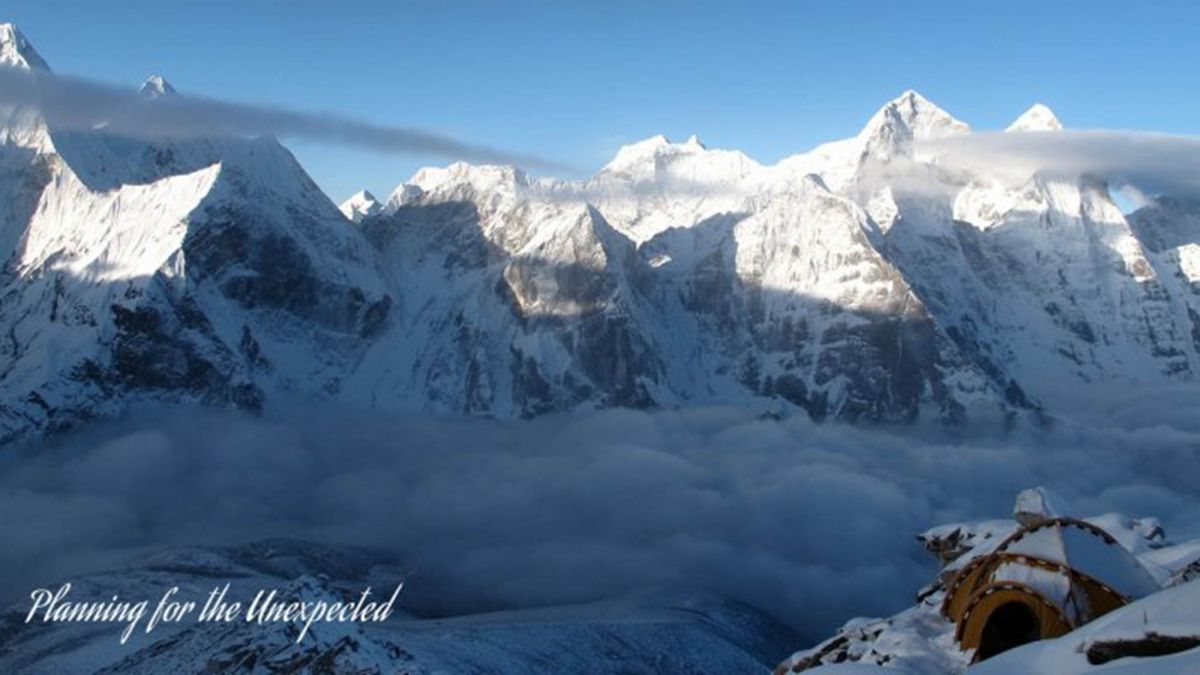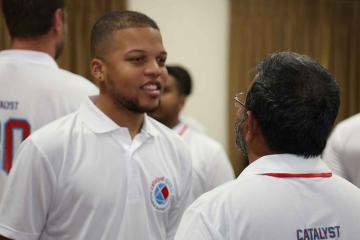To achieve any goal, a team needs a strategy to achieve that goal, as well as a plan with which to implement its strategy - no matter how formal. However, even the most well plotted plan can hinder a team’s success if it does not allow for flexibility in the face of a changing environment, unexpected situations, and team members’ various needs.
Peak Performance, Catalyst Global’s innovative experiential learning game, uses a simulated Mount Everest expedition to teach teams how to build plans that can be adapted to work effectively in changing situations.
Planning for the Unexpected
While corporate environments and mountain treks may seem worlds apart, many of the ways teams must work together to be successful in both contexts are the same.
In mountaineering, many parts of the plan are fixed, while certain parts must be kept flexible. Weather conditions are quick to change. Clients who appear to have extensive experience and fitness levels can fail at altitude. By rehearsing extensive “what if” scenarios long before they get to the mountain, climbing teams can ready themselves for the unexpected.
“We went to that mountain with a great plan, an elegant plan,”
David Finlay Breashears, an American mountaineer, Leadership: Leadership Lessons from Survivors, 2006.
“A good plan makes you nimble, not stuck. Ours gave us options … wiggle room.”
So too, in business, being flexible in order to calibrate the project along the way and tweak the rules and requirements is imperative. If teams become too entrenched in a plan they make themselves vulnerable to being unable to effectively respond to changes in the business environment. Preempting a variety of different scenarios allows teams to adapt to changing circumstances in a practised considered manner, seeing what’s getting in the way or what needs to be arranged in order to simplify the problem-solving process and make progress visible.

A Balanced Approach to Planning
In business, as in climbing, it is imperative to identify the steps that are required to make progress. Outlining the measurable time-based actions and milestones are key to success in any project, but getting caught up in the detail can also get in the way of required action in the face of unforeseen issues, take a toll on team morale, and ultimately put progress toward the common goal in jeopardy.
In preparing to climb Everest, planning and training takes months, sometimes years: the right people with the required knowledge and skills must be selected, climbers must prepare physically, financial planning must be completed, required equipment must be sourced and transported, and actual expedition plans and itineraries must be created based on extensive research. Then, once on the mountain changing weather conditions, injuries, lost or broken equipment, among other challenges, can throw a trek’s itinerary off the rails. The team must come together to address these challenges, communicating effectively, staying calm and positive, and problem-solving in order to alter the original plan to better respond to altered factors.
“We had to climb on the mountain’s schedule, not ours,” said Breashears
In a business setting, changing conditions rarely put human lives at stake, but are no less threatening to the ultimate success of a team’s overall goal.
In a fun and engaging manner, Peak Performance puts participants in a situation which requires skilled planning and communication by teams while demanding flexibility to the plan through understanding and considering a myriad of situational changes which could cause possible impediments to the plan. It leaves participants with a mindfulness of the importance of flexible planning to success.




